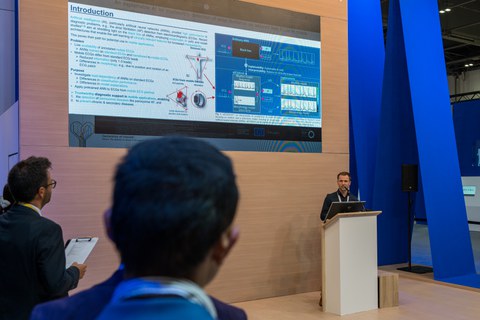Sep 06, 2024
Alexander Hammer presents the latest findings on the use of explainable AI to detect atrial fibrillation in mobile ECGs at the ESC Congress in London
Alexander Hammer presented the latest findings on the use of explainable AI to detect atrial fibrillation in ECGs with reduced leads and mobile applications at the ESC Congress of the European Society of Cardiology in London.
The presentation demonstrated that AI models developed in the working group can be applied to various ECG leads using the innovative AI architecture xECGArch. xECGArch consists of two separate models: one independently learns the rhythm and the other the morphology features. For different leads, both models achieved classification accuracies between 90 and 95% on a large unknown data set, which could be further increased by combining both models in xECGArch. In addition, the model explanations were consistent with the established diagnostic criteria for atrial fibrillation regardless of the lead. When applied to mobile data, atrial fibrillation could be correctly identified.
Overall, xECGArch can be transferred to other leads and mobile ECGs and still provide very reliable classifications and explanations, making it a trustworthy tool for mobile health applications to detect atrial fibrillation.
Read the abstract: https://esc365.escardio.org/ESC-Congress/sessions/11976
Learn about xECGArch: https://xecgarch.com

Doctoral Student | ecgXfusion
NameMr Dipl.-Wi.-Ing. Alexander Hammer
Biosignal Processing Group
Send encrypted email via the SecureMail portal (for TUD external users only).
Visiting address:
Fetscherforum (29), 1st Floor, Room 31 Fetscherstraße 29
01307 Dresden

